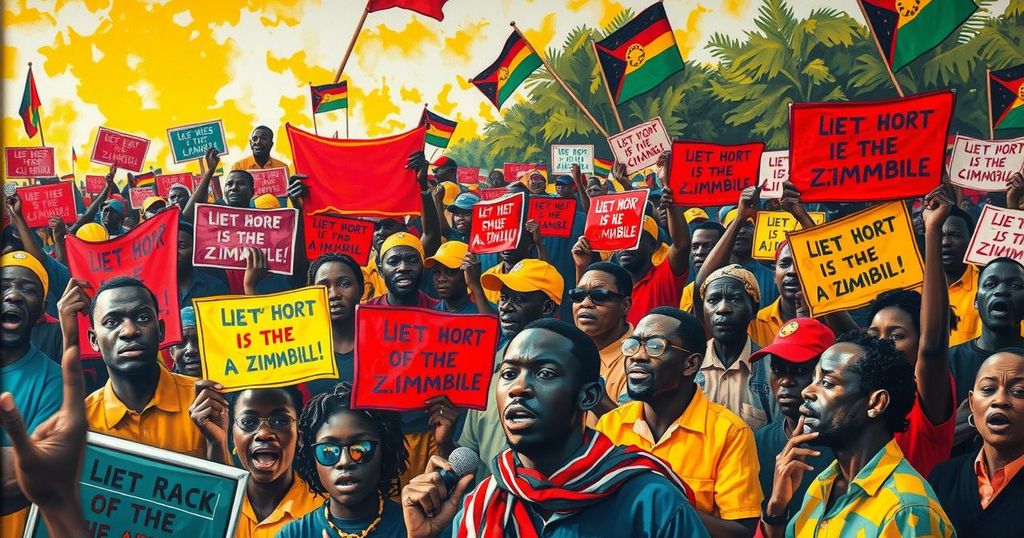Effects of Protests Against Mnangagwa’s Term on South Africa
Calls for President Mnangagwa to resign have stirred political instability in Zimbabwe, prompting many citizens to consider emigration to South Africa despite increasing deportations. The migration could strain South Africa’s resources, as dissent against the ruling party intensifies and protests grow likely due to internal party discord over Mnangagwa’s potential third term.
The political turmoil in Zimbabwe, particularly the escalating calls for President Emmerson Mnangagwa to resign, poses potential challenges for South Africa. While living conditions in Zimbabwe are dire, with significant unemployment and poverty levels, many Zimbabweans view South Africa as a land of opportunity, leading to an expected increase in migration.
Recent reports from South Africa’s Department of Home Affairs indicate that deportations of Zimbabweans have surged since 2020, yet many still opt to return to South Africa for employment. For instance, Sothini Ncube, a vendor from Bulawayo, expressed his frustrations with the lack of job opportunities and essential services in Zimbabwe, stating, “I would rather risk insults in SA but at least get some treatment when I fall sick.”
In light of political instability due to internal party disputes within Zanu-PF regarding Mnangagwa’s term extension, a notable shift in migration patterns may emerge. Economists, such as Stevenson Dlamini, highlight the strain this could place on South Africa’s public services and infrastructure as larger numbers of economic migrants flow into the nation.
Zanu-PF has witnessed factional disputes stemming from discussions about extending Mnangagwa’s presidency or altering the constitution to facilitate a third term until 2034. Despite Mnangagwa’s assertion that he will adhere to constitutional limits, dissent within the party continues to grow, resulting in protests led by figures like Blessed Geza, who has called for resistance against the current regime.
The situation in Zimbabwe remains fluid, reflected in the swift changes within the country’s security sector by Mnangagwa, aimed at consolidating power ahead of anticipated protests. Changes in leadership positions within the Zimbabwe Republic Police, Central Intelligence Organisation, and the Zimbabwe National Army denote a strategic shift in the governance framework following calls for Mnangagwa’s ousting.
In conclusion, the political unrest surrounding President Mnangagwa’s potential term extension underscores the anticipated influx of Zimbabweans seeking refuge in South Africa. The implications of this migration could significantly strain South Africa’s already stretched public resources. As internal tensions within Zimbabwe’s governing party escalate, the likelihood of increased protests may further complicate the regional dynamics between Zimbabwe and South Africa.
Original Source: www.newzimbabwe.com




Post Comment